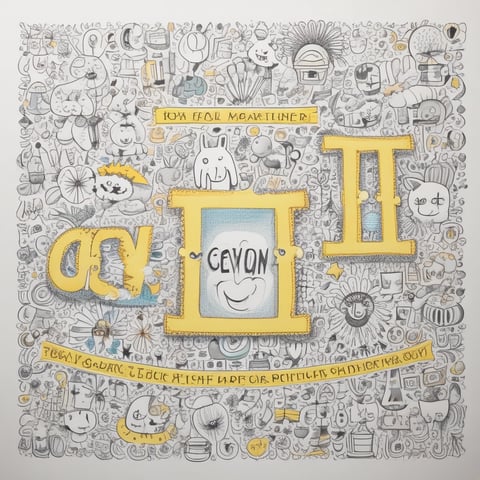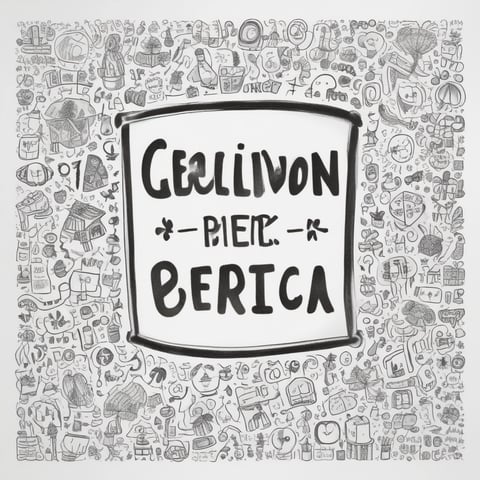GEWOON PATRICK
Embracing Minimalism: The Art of Living with Less
5/28/20258 min lezen


What is Minimalism?
Minimalism is a lifestyle philosophy that advocates for simplicity and the intentional reduction of material possessions and clutter. It originated in the 20th century as a movement in art and design, emphasizing clean lines and functionality. However, it has since evolved into a broader cultural trend that impacts various aspects of life, encouraging individuals to prioritize experiences over possessions. In contemporary society, minimalism is often understood as a means to enhance one's quality of life by decluttering both physical and mental spaces.
The core principles of minimalism revolve around the idea of living with less. This involves a conscious decision to eliminate excess, allowing individuals to focus on what truly matters to them. Minimalism is not solely about reducing physical items; it also encompasses a mindset shift toward valuing relationships, personal growth, and mental well-being. By recognizing what adds true value to their lives, minimalists often find increased mental clarity, reduced stress, and a greater sense of freedom.
This philosophy has garnered popularity in recent years as people seek to escape the consumerist culture characterized by overconsumption and the constant pursuit of material goods. Through the minimalist lens, one can see that the accumulation of possessions can often lead to anxiety and dissatisfaction. Instead, embracing minimalism encourages individuals to cultivate experiences, hobbies, and connections that enrich their lives, while simultaneously reducing the distractions and obligations that come with maintaining too many belongings.
In the digital realm, minimalism manifests through the reduction of digital clutter, advocating for streamlined online experiences and the selective use of technology. This holistic approach to minimalism offers a compelling alternative to conventional lifestyles, inviting individuals to explore the benefits of a simpler, more intentional way of living. By focusing on what matters, minimalists aim for a more fulfilling, intentional existence, which continues to resonate with many people today.
The Benefits of Minimalism
Embracing minimalism can profoundly transform an individual's life, offering a multitude of benefits that promote both mental and emotional well-being. One of the primary advantages of adopting a minimalist lifestyle is the significant reduction in stress and anxiety. When individuals are surrounded by fewer possessions, they often experience a decrease in the chaos and clutter that can contribute to feelings of overwhelm. This newfound simplicity allows for more clarity in thought and a calmer environment, fostering a space where relaxation and mindfulness can thrive.
Furthermore, minimalism encourages increased focus and productivity. By eliminating distractions associated with unnecessary items and obligations, people can better direct their attention toward what truly matters—be it personal goals, work responsibilities, or relationships. This streamlined approach to life can lead to enhanced efficiency and a greater sense of accomplishment, as individuals are better able to concentrate on tasks without the constant pull of cluttered spaces or overwhelming choices.
In addition to mental clarity, minimalism can also foster financial savings. By prioritizing experiences over material possessions, individuals often find themselves spending less on non-essential items, reducing unnecessary expenditures and enabling them to redirect funds toward meaningful experiences, such as travel or education. For instance, many individuals who have transitioned to a minimalist lifestyle report feeling liberated by their reduced spending habits, allowing them to save money and invest in what truly enriches their lives.
Real-life testimonials from those who have embraced minimalism reveal a consistent trend: individuals express a heightened appreciation for life's experiences rather than accumulating material goods. By choosing to live with less, many discover a greater sense of freedom and fulfillment. Overall, minimalism provides an opportunity for enhanced well-being through a focus on intentional living, ultimately leading to a more balanced and purposeful life.
How to Start Your Minimalist Journey
Embarking on a minimalist journey can significantly transform your lifestyle, promoting a more organized and intentional approach to living. To begin, the first step involves decluttering your living space. Take inventory of your possessions by going through each room systematically. Create categories for items you use regularly, those that hold sentimental value, and things that no longer serve a purpose. For items that you can part with, consider donating or recycling them, which will not only reduce clutter but also contribute positively to your community.
Next, evaluate your possessions with a critical eye. Ask yourself whether each item adds value to your life or simply occupies space. This process goes beyond physical objects and extends to digital belongings. Unsubscribe from emails and delete digital files that no longer serve you. Conducting a thorough evaluation of what you own fosters a clearer understanding of your priorities, allowing you to focus on what truly matters to you.
Setting priorities is crucial in adopting a minimalist lifestyle. Identify areas where you can streamline your life, whether that pertains to clothing, home décor, or even commitments. By prioritizing essential activities and possessions, you can create a more focused and tranquil environment. Moreover, it’s important to create a living space that reflects minimalism; choose furniture that is functional and decluttered while opting for neutral or calming colors that promote simplicity.
Mindset plays a vital role throughout this process. Approach minimalism not merely as a physical alteration but as a way of rethinking your relationship with material possessions. Embrace intentionality in decision-making; ensure that every item you choose to keep contributes positively to your life. Remember that minimalism is not a one-time endeavor but an ongoing journey that encourages self-reflection and adjustment.
Common Misconceptions About Minimalism
Minimalism is often misunderstood, leading to a number of misconceptions that can deter individuals from embracing its principles. One prevailing myth is that minimalism requires extreme sacrifice, suggesting that one must completely eliminate possessions, living space, and personal comfort to achieve a minimalist lifestyle. However, this portrayal is not entirely accurate. Minimalism is more about intentionality and choice rather than deprivation. Individuals can identify and retain items that hold genuine value to them, allowing for a personal expression of minimalism that aligns with their unique lifestyle.
Another common misconception is that minimalism is a practice only accessible to the affluent. While it is true that some extreme forms of minimalism can appear to favor those with resources, the core principles of minimalism are fundamentally about reducing excess and simplifying one’s life, which can be applied regardless of financial status. Many individuals find that by decluttering their environments and focusing on their essential needs, they can create a more fulfilling and less stressful life, independent of their wealth or possessions.
Additionally, minimalism is often perceived as a one-size-fits-all approach. In reality, it can be personalized and adapted to various lifestyles, cultures, and individual preferences. Someone living in a bustling urban environment may approach minimalism differently than someone in a rural setting. This adaptability allows individuals to apply minimalist principles in a manner that best suits their circumstances, making it a versatile practice for people from all walks of life.
By addressing these misconceptions, we can foster a better understanding of minimalism and encourage more people to explore how this philosophy can lead to a more meaningful and organized life, tailored to their own backgrounds and needs.
Minimalism in Different Areas of Life
Minimalism is often associated with the reduction of physical possessions, yet its principles can be extended to other vital areas of life, such as digital spaces, relationships, time management, and environmental sustainability. By adopting a minimalist mindset, individuals can cultivate simplicity and intentionality across various dimensions, fostering a more holistic and fulfilling lifestyle.
In the realm of digital spaces, minimalism encourages individuals to declutter their online presence. This could mean reducing the number of applications on one’s phone, unsubscribing from unnecessary email lists, or simplifying one’s social media accounts. A streamlined digital environment can lead to decreased distractions and increased focus, ultimately enhancing productivity and mental clarity. As technology becomes increasingly pervasive, embracing digital minimalism offers a pathway to regain control over one's online life.
When it comes to relationships, minimalism invites a reevaluation of social interactions. It encourages individuals to nurture quality connections rather than a wide array of superficial ones. By prioritizing deeper, more meaningful relationships, people can reduce emotional clutter and foster true companionship. This form of intentional relationship management can lead to increased satisfaction and emotional well-being, as individuals invest their time and energy into connections that truly matter.
Time management is another critical area where minimalism can create substantial benefits. By adopting a minimalist approach to scheduling, individuals can focus on what truly aligns with their values and priorities. This might involve eliminating unnecessary commitments and being selective about how time is spent. By doing so, one can create space for activities that bring joy and fulfillment, ultimately leading to a more balanced and harmonious life.
Finally, minimalism extends to environmental sustainability by encouraging mindful consumption and reducing waste. Living simply often translates into making conscious choices that support the planet, thus fostering a symbiotic relationship between personal minimalism and environmental health. Through mindful purchasing decisions and resource conservation, individuals can contribute to a sustainable future while also enjoying the benefits of a minimally-driven lifestyle.
Challenges of Embracing Minimalism
Adopting a minimalist lifestyle presents several challenges that may deter individuals from fully committing to this philosophy. One of the primary obstacles is societal pressure. In many cultures, material possessions are closely associated with success, happiness, and identity. The drive for consumerism can create an internal conflict for those wishing to embrace minimalism, as they may feel judged or misunderstood by peers who value accumulation over simplicity. This pressure often manifests through social media, where images of wealth and luxury abound, causing potential minimalists to question their choices and desires.
Another significant challenge is the emotional attachment individuals often form with their possessions. Items acquired over time may carry memories or symbolize specific life events, making the decision to declutter particularly daunting. This attachment can create anxiety around the process of letting go, causing individuals to postpone or abandon their minimalist journey altogether. Acknowledging these feelings is crucial, as it can help individuals differentiate between valuables and mere excess, allowing them to make more informed decisions when it comes to decluttering.
The fear of letting go is another common barrier encountered on the minimalist path. Individuals may worry about the might-have-beens associated with discarded items, leading to regrets that can impede progress. Strategies for overcoming these challenges include setting clear intentions for a minimalist lifestyle and recognizing the benefits of living with less, such as reduced stress and increased clarity. Building a supportive community can also offer individuals motivation and encouragement, as shared experiences can provide valuable insights. Ultimately, confronting these challenges head-on and adapting to a minimalist mindset can lead to a more fulfilling and meaningful life.
Future of Minimalism
As society continues to evolve, the future of minimalism appears increasingly intertwined with broader cultural and environmental trends. In an era characterized by consumerism, the minimalist movement presents a counter-narrative that champions simplicity and intentional living. In light of growing awareness surrounding sustainability, many people are re-evaluating their consumption patterns, seeking to prioritize quality over quantity. This shift is likely to foster a deeper appreciation for minimalist philosophies, promoting a lifestyle that emphasizes the importance of experiences rather than material possessions.
Environmental concerns are also at the forefront of shaping the minimalist conversation. As climate change and resource depletion become more pressing issues, embracing a minimalist approach can serve as a solution to excessive consumption and waste. Future proponents of minimalism may increasingly advocate for practices such as zero-waste living and thoughtful consumption, appealing to individuals who wish to align their lifestyles with their ecological values. This alignment not only encourages a reduction in physical belongings but also fosters a sense of responsibility towards the planet.
Furthermore, the rise of digital nomadism and remote work has influenced the minimalist lifestyle. Many individuals are now opting to live with fewer possessions, as they prioritize mobility and flexibility in their professional lives. This trend could see the minimalist movement evolve into a global phenomenon, wherein individuals adopt minimalism not merely as a lifestyle choice but as a necessity dictated by modern work environments.
In conclusion, the future of minimalism is likely to be shaped by a confluence of consumer attitudes, environmental awareness, and changing work dynamics. As society grapples with the implications of overconsumption, the minimalist philosophy holds potential for inspiring a more thoughtful and sustainable approach to living, ultimately redefining what it means to thrive in a complex world.




